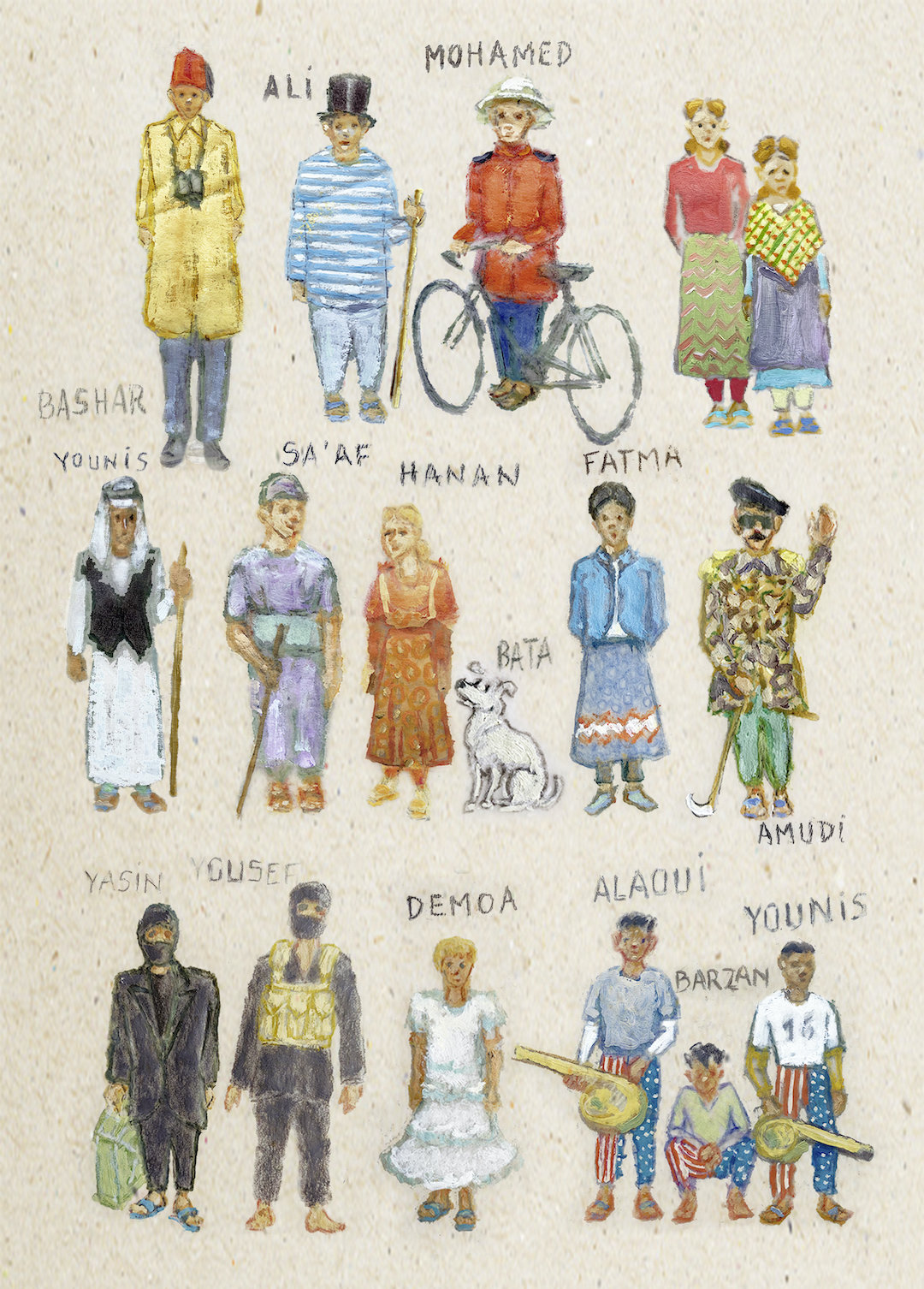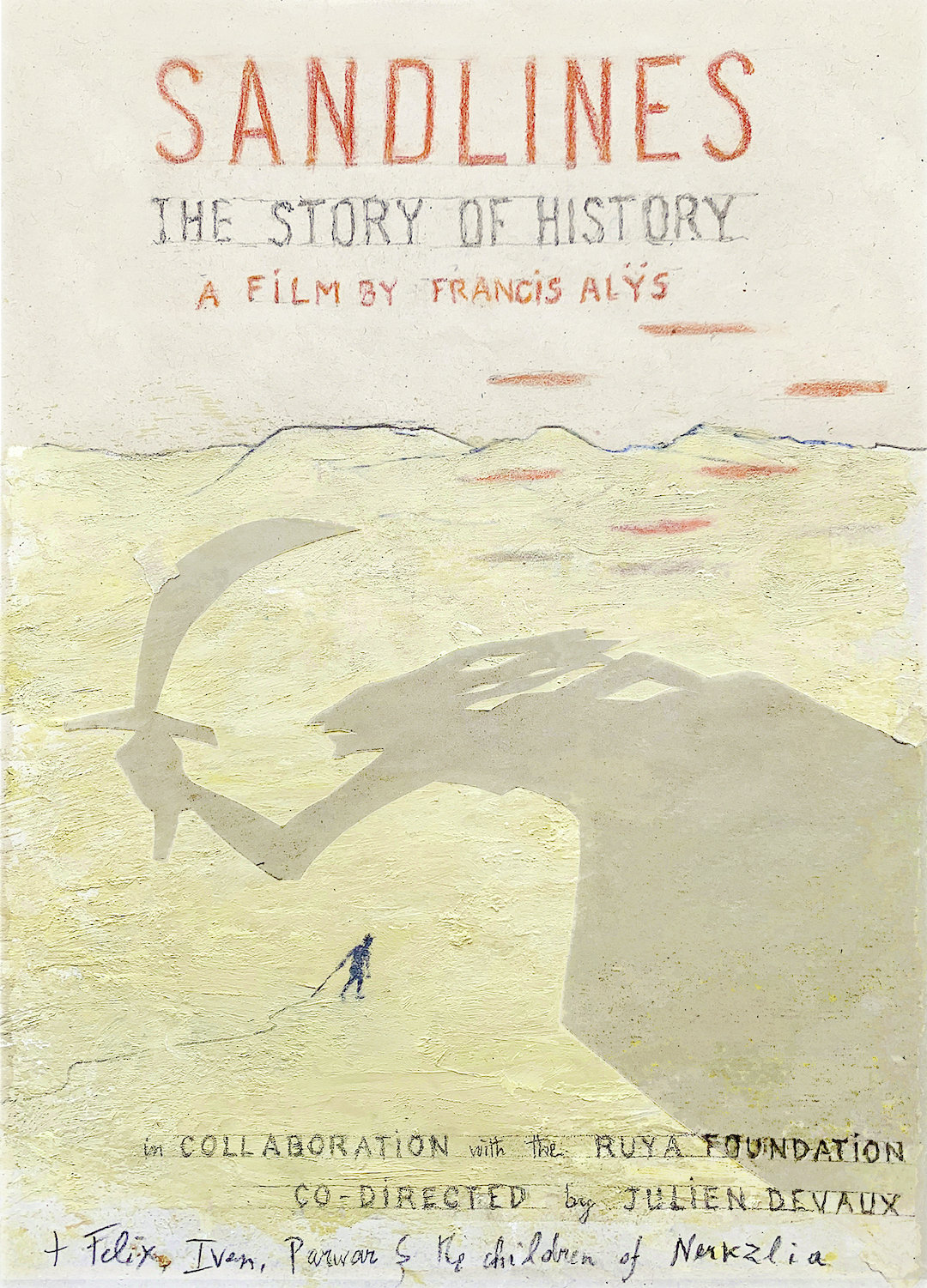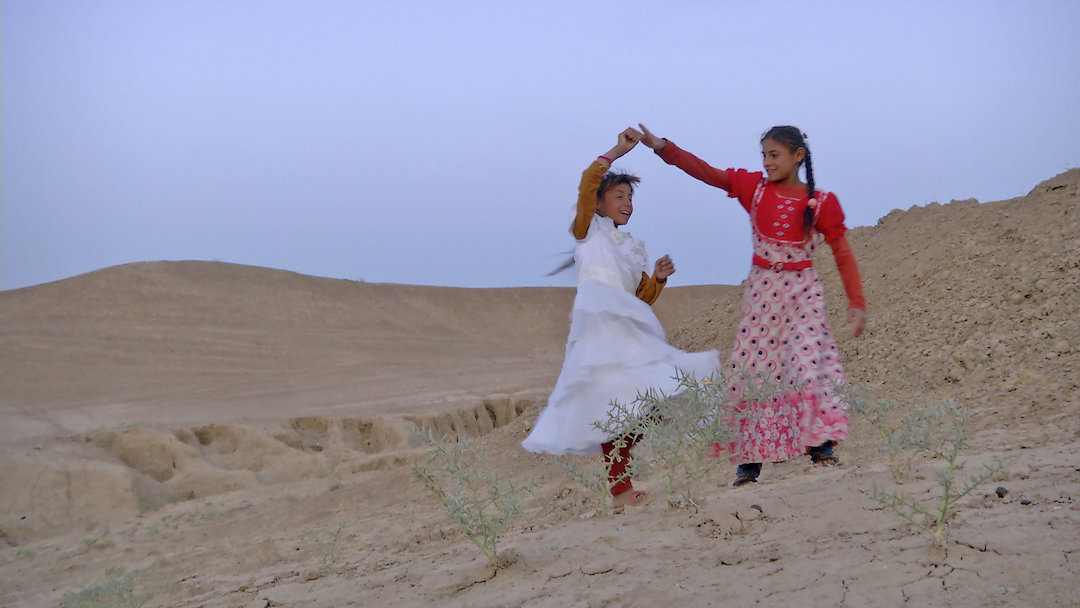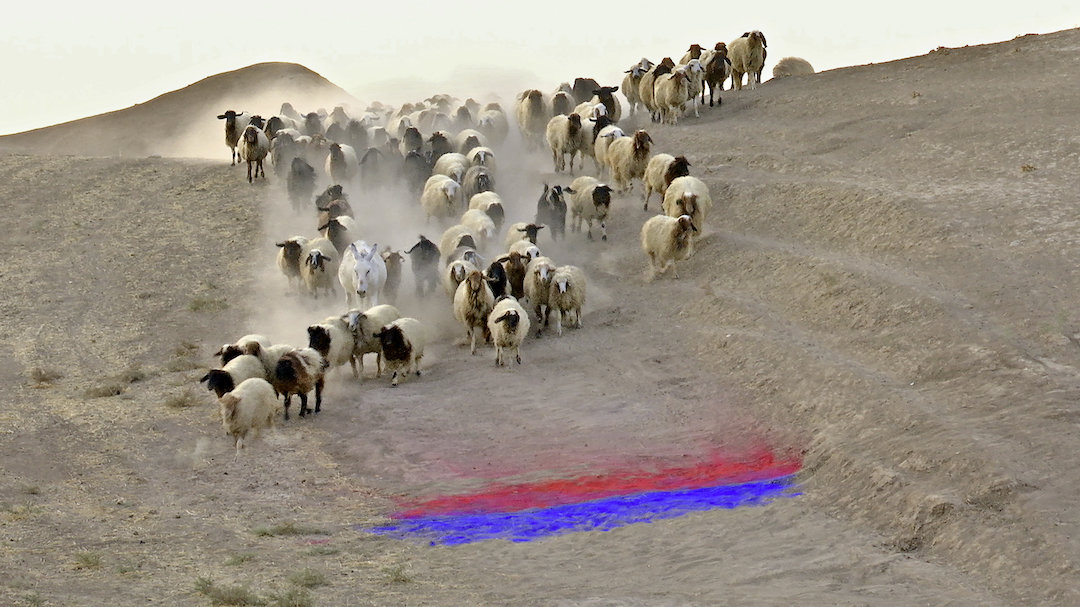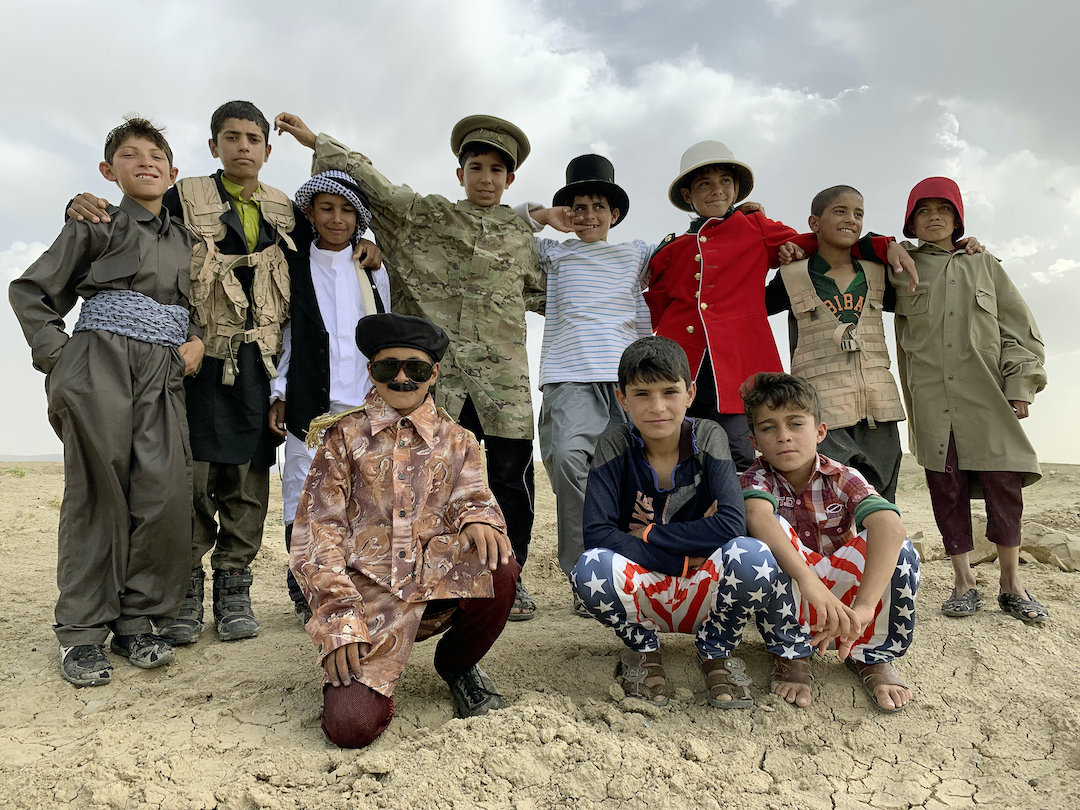Sandlines, The Story of History Francis Alÿs
Mexiko/Irak-2020, 61 Mi. engl/arab.UT
Regie, Drehbuch, Kostüm
Francis Alÿs
Kamera
Francis Alÿs, Ivan Boccara, Julien Devaux
Schnitt
Julien Devaux
Ton
Felix Blume
Mit
Mohamed (der Engländer), Ali (der Franzose), Fatma (Erzählerin), Demoa (Begleiterin der Erzählerin), Younis (der Araber)
Produktion
Francis Alÿs, Ruya Foundation
Weltvertrieb
Francis Alÿs, Julien Devaux
- English
- Deutsch
Belgium-born multi-disciplinary artist Alÿs (WALKING A PAINTING, Viennale 2011) has been based in Mexico City since 1986, a genuinely international figure whose fascinating praxis transcends traditional boundaries of geography and time. For the last four years he has worked mainly in Iraq, where the period he spent “embedded” with a Peshmerga Battalion during the Mosul siege yielded the short COLOR MATCHING. Now he imaginatively expands his canvas to feature-length film for the first time, collaborating with the children of a small mountain village in the northern province of Nineveh to recount a century of Iraqi history – with myriad implicit allusions to the world beyond. Deploying basic means, props, and costumes, these energetic young performers role- play crucial junctures in their land’s deeply troubled passage through epochs of war, peace, repression, and upheaval. In the process, they learn about their own history, and how lines arbitrarily drawn in sand with sticks become frontiers of global consequence. Via their words and actions, we see how the past has shaped the present into cruel and harsh conditions, punishing environments where the spirit of endurance and resistance inspiringly shines. (Neil Young)
Francis Alÿs – Fotograf, Maler, Aktions- und Videokünstler – ist ein Mann von tausend Ideen. Hier lässt er eine Gruppe einheimischer, sehr aufgeweckter Kinder aus einem Dorf in der Nähe von Mossul das letzte Jahrhundert irakischer Geschichte nachspielen. Kinder, die in ihrem eigentlichen Leben Schaf- oder Ziegenhirten sind und denen allein der Begriff „Irak“ nicht viel sagt. Da Alÿs offenbar nur über sehr geringe Mittel verfügt, macht er aus jeder Not eine Tugend. Mit einem Minimum an Requisiten und Kostümen gelingen ihm in einer extrem kargen Hügellandschaft Bilder, die den Kolonialismus und seine Folgen besser als so manches dicke Buch erklären. (Ferdinand Keller)
